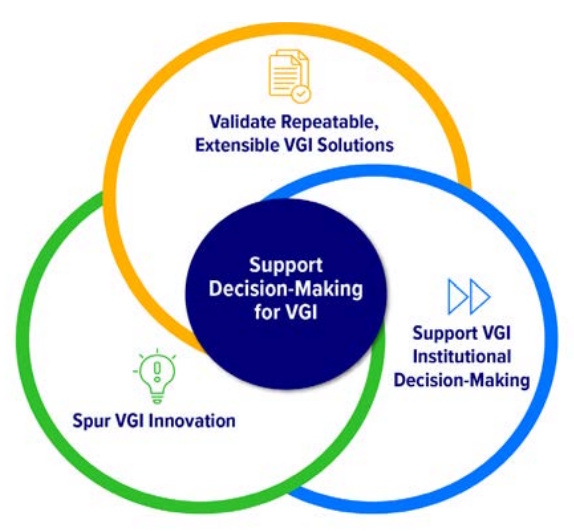V2G News
White Paper: U.S. Department of Energy Strategy for Achieving a Beneficial VGI Future
January 2025 | Back to News home
 This strategy paper builds on
DOE's visioning document, The Future of Vehicle Grid Integration: Harnessing the Flexibility of EV Charging, describing activities DOE will undertake to support stakeholders in achieving an EV-integrated future
in which EVs, including personal vehicles, commercial freight fleets and school buses, are safely and securely
connected to, reliably served by, and harmonized with the electric grid.
This strategy paper builds on
DOE's visioning document, The Future of Vehicle Grid Integration: Harnessing the Flexibility of EV Charging, describing activities DOE will undertake to support stakeholders in achieving an EV-integrated future
in which EVs, including personal vehicles, commercial freight fleets and school buses, are safely and securely
connected to, reliably served by, and harmonized with the electric grid.
This holistic, department-wide effort was developed recognizing DOE's key role as a convener and partner in the development and deployment of new technologies. It employs three strategies that are focused in areas where DOE can have the most impact and support stakeholders to cement coordination between the electric and transportation sectors.
The three strategies, which work collectively and in coordination, are:
1. Validate Repeatable, Extensible VGI Solutions. For successful deployment, a bridge must be constructed to move from pilot to scale. Developing opportunities for scaling under this strategy, DOE will support flexible charge management to shift load, engage in work that enhances reliability and resilience by utilizing EVs, and further technology solutions for seamless data and information sharing, while ensuring learnings can be extended across jurisdictions.
2. Support VGI Institutional Decision-Making. The work of integrating EVs into the grid will depend on decisions from stakeholders, including regulators, automakers, and customers. Making information and data accessible can facilitate decision-making. DOE will provide resources, convene stakeholders, and provide pathways to measure progress accelerating institutional decision-making for VGI.
3. Spur VGI Innovation. Continued innovation is needed to achieve the Vision. This requires continued support of technological advancement and innovation; adapting existing processes, systems, and our workforce to evolving technology; and enabling institutional innovations that create pathways to accelerate deployment.
Read the full strategy document here.
Source: U.S. Department of Energy
> Back to News home
White Paper: U.S. Department of Energy Strategy for Achieving a Beneficial VGI Future
January 2025 | Back to News home

This holistic, department-wide effort was developed recognizing DOE's key role as a convener and partner in the development and deployment of new technologies. It employs three strategies that are focused in areas where DOE can have the most impact and support stakeholders to cement coordination between the electric and transportation sectors.
The three strategies, which work collectively and in coordination, are:
1. Validate Repeatable, Extensible VGI Solutions. For successful deployment, a bridge must be constructed to move from pilot to scale. Developing opportunities for scaling under this strategy, DOE will support flexible charge management to shift load, engage in work that enhances reliability and resilience by utilizing EVs, and further technology solutions for seamless data and information sharing, while ensuring learnings can be extended across jurisdictions.
2. Support VGI Institutional Decision-Making. The work of integrating EVs into the grid will depend on decisions from stakeholders, including regulators, automakers, and customers. Making information and data accessible can facilitate decision-making. DOE will provide resources, convene stakeholders, and provide pathways to measure progress accelerating institutional decision-making for VGI.
3. Spur VGI Innovation. Continued innovation is needed to achieve the Vision. This requires continued support of technological advancement and innovation; adapting existing processes, systems, and our workforce to evolving technology; and enabling institutional innovations that create pathways to accelerate deployment.
Read the full strategy document here.
Source: U.S. Department of Energy
> Back to News home